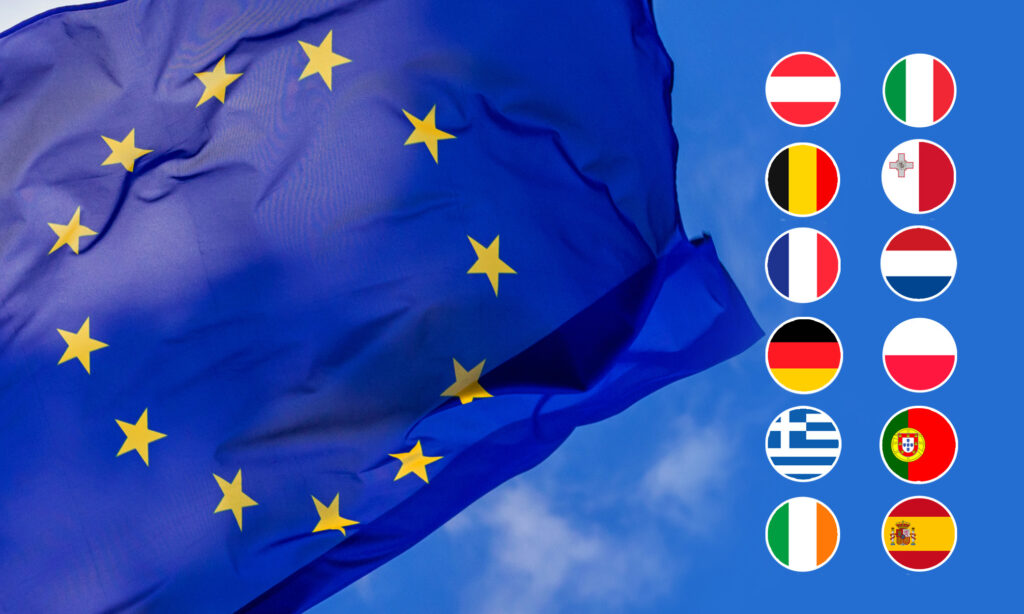Jump to other articles:
- Malta Budget 2026: Key Benefits for U.S. Families & Entrepreneurs Relocating to Malta
- Malta Vision 2050: Attracting the Innovators Who Will Shape Malta’s Future
- Portugal’s Citizenship Law Frozen: What Golden Visa Investors Need to Know Now
- Italy Golden Visa & Elective Residence Visa: What to Know About 2025’s New Biometric Requirements
- Italy’s Flat-Tax Regime and Milan’s Rise: A Blueprint for Wealth Migration
European Elections 2024 and the Effect on Investment Migration

From Thursday, June 6 to Sunday, June 9 2024 EU citizens headed to polling stations to cast their vote at the European Parliament elections. This is a process that happens every 5 years. But what will be the effect of these European elections of 2024 on the world of investment migration?
Let’s take a look at these key elections in 12 EU countries as well as the European Union as a whole. We’ll examine the potential repercussions on both inward and outward migration. The 12 countries are Austria, Belgium, France, Germany, Greece, Ireland, Italy, Malta, Netherlands, Poland, Portugal, and Spain.
Austria
Final results see Die Freiheitliche Partei Österreichs (FPÖ) take over a quarter of the vote in Austria. This right-wing party secured 6 seats in the European Parliament. They belong to the pan-European populist Identity and Democracy Party (ID Party) alliance.
Lagging slightly behind with just under 25% of the Austrian vote for both are the centre-right Österreichische Volkspartei (ÖVP) and centre-left Sozialdemokratische Partei Österreichs (SPÖ). They secure 5 seats each, to give the Austrian MEPs a broadly pro-European and more progressive flavour. This ensures the appeal of the Austrian Citizenship by Descent Programme remains unaffected.
Belgium
In Belgium, Belgian citizens were also voting in national and regional elections as well as the European one. Across the board, the extreme-right saw the biggest swings in popularity go in their favour. This resulted in the Open Vlaamse Liberalen en Democraten (OPEN VLD) leader Alexander De Croo resign as prime minister.
French-speaking Belgians who want to avoid a predicted period of protracted coalition have the perfect investment migration escape route. France is one of two official languages in traditionally liberal Canada. So, the Canada Start-Up Visa might be worth looking into.
France
Political developments have been even more tumultous in neighbouring France. There the fascist Rasaemblement National (RN) party, part of the wider ID Party, recorded almost a third of the votes for French MEPs. This triggered French president Emmanuel Macron to call a snap general election.
Éric Ciotti, the leader of France’s traditional conservatives, Les Républicains (LR) has been seen cosying up to RN head, Marine Le Pen. This might see French moderates eyeing a door labelled Sortie. Again, French-literate Canada could be an option on the Residency by Investment front.
Germany
The centre-right Christlich Demokratische Union Deutschlands/Christlich-Soziale Union in Bayern (CDU/CSU) took the most votes in Germany. They hope they can transfer that popularity at the next general election as they look to relive the golden years of Angela Merkel. Yet their biggest challenger in the European elections was not the incumbent Sozialdemokratische Partei Deutschlands (SPD).
No, claiming over half the support of CDU/CSU was Alternative für Deutschland (AfD). ID Party members, AfD are considered such a threat in their homeland that a German judge ruled they should be treated as extremists. With newer support in western Germany mirroring that in eastern Germany, more broad-minded Germans might be looking further west, to the likes of Spain, the UK, and the US who President Biden insists remains committed to “protect freedom in our time, defend democracy, stand up to aggression abroad and at home, be part of something bigger than ourselves.”
Greece
In the birthplace of democracy, Néa Dimokratía (yes, New Democracy) continues to enjoy the support of the majority of the nation as it has since winning the general election in 2019. Its 28.31% share of the European Election vote was almost double that of its socialist SYRIZA rival. So, the Greek Golden Visa doesn’t appear to be losing any of its shine.
Yet one shouldn’t get too complacent about Greek Residency by Investment. It’s unlikely to be around for ever. And if you are interested in securing a Hellenic Visa of the Golden Variety, sooner is superior to later as the minimum price is set to increase from €250,000 to €400,000 by the end of September.
Ireland
Continuing our European Elections 2024 coverage, we turn to Ireland. These were held on Friday, June 7, 2024, on the same day as the country’s local elections. The two biggest members of the three-party coalition that governs Ireland, the Christian Democratic Fianna Fáil and the liberal conservative Fianna Fáil took the lion’s share of the votes.
On Saturday, February 15, 2023, the Irish Government closed the Irish Investor Programme. But while they have the power to remove this Residency by Investment, Irish Citizenship by Descent remains freely available. It’s a bloodright.
Italy
Provisional results see Fratelli d’Italia (Fdl) register 28.76% of the popular vote. This is the party of Italian prime minister, Giorgia Meloni. It’s right wing and populist, with Meloni seen as the heir of former dictator Benito Mussolini.
Yet the centre-left Partito Democratico (PD) are tipped to take 21 seats to Fdl’s 24. So there is a certain amount of equilibrium in the Italian political landscape. This makes Italian Citizenship by Descent an enduringly attractive proposition.
Malta
In Malta, MEPs are equally split between the ruling socialists, the Labour Party, and conservative rivals, the Nationalist Party. Both will send three representatives to the European Parliament in Strasbourg.
This election has no bearing on the future of Maltese Exceptional Investor Naturalization (MEIN) or the Malta Permanent Residence Programme (MPRP). Yet the fate of these two investment migration programmes is tied up with the European Union, especially the MEIN. Indeed, the European Commission is taking the Malta Government to the European Court of Justice with EU Justice Affairs Commissioner Didier Reynders maintaining that “European Union values are not for sale.”
Our Executive Chairman Eric Major expects “Malta to win this battle but we will have to see who wins the war.” Major thinks the long-term prospect for the MEIN is not certain and that you should act fast if you’re interested in investing to acquire European citizenship while you still can.
Netherlands
In a reversal of 2023’s Dutch general election, the big winners of the European Elections were the PvdA–GroenLinks (Labour/Green Left) coalition. They edged out the radical right-wing Partij voor de Vrijheid (PVV), as in Freedom Party. This brings more stability to the country.
If any more enlightened citizens of Holland are still reeling from the aftershocks of 2023, there are investment migration solutions. One thinks of the US EB-5 Investor Visa, for example. New York, after all, was once New Amsterdam.
Poland
Polish politics are becoming more centrist. The one-time President of the European Council, Donald Tusk returned as Poland’s prime minister in 2023. Despite sharing a first name and initials with Donald Trump, Tusk was a founder member of the Kongres Liberalno-Demokratyczny (KLD) and his current party is the Koalicja Obywatelska (KO), Civil Coalition, who helped to defeat Mateusz Morawiecki who controversially spied on rivals using Pegasus software.
KO delivered another knockout in 2024, with 37.06% of the votes for new MEPs. With the country on a more even keel, there’s no time like now to check out if your family tree has a Polish branch. That way, you qualify for the Polish Citizenship by Descent Programme.
Portugal
Portugal is another country where European Elections 2024 closely followed a national election. The latter saw the populist CHEGA record a near 20% share of the vote. However, the election deciding upon Members of the European Parliament saw their support halve.
Instead, Partido Socialista (PS) and the Aliança Democrática (AD) candidates received the biggest number of crosses. This is good news for the Portuguese Golden Visa. Despite rumours of its demise, it continues to evolve with the recent addition of new elements.
Spain
The centre held firm in neighbouring Spain too. The version of CHEGA there, Vox, saw their showing dwindle. Instead, the ruling Partido Socialista Obrero Español (PSOE) and conservative opposition Partido Popular (PP) won 2/3 of the vote.
While that is good news for European unity, it was PSOE leader Pedro Sánchez who said that he intends to remove the real estate component from the Spanish Golden Visa. With this Residency by Investment, carpe diem should again be your motto. Seize the moment before the opportunity is lost for good.
What Will the European Elections 2024 Mean For the Future of Investment Migration
It’s still early to say about the effect on Residency and Citizenship by Investment. The European People’s Party, with a projected 186 seats, remains the most popular group. This collection of Christian Democrats with a strong progressive opposition have managed to keep the populists at bay.
The long-term stability of investment migration programmes, as we have seen, is not too tied to the European Elections 2024. However, in the case of Malta, Europe will have its eventual say. As they will with golden visas.

How to Take Advantage of Investment Migration Solutions Today
Whether you’re looking to migrate in or out of the EU, Residency and Citizenship by Investment can help. Citizenship by Descent is only for inbound migration. As Latitude Group specializes in all three investment migration industries, don’t delay and contact us today.
 Back to News
Back to News